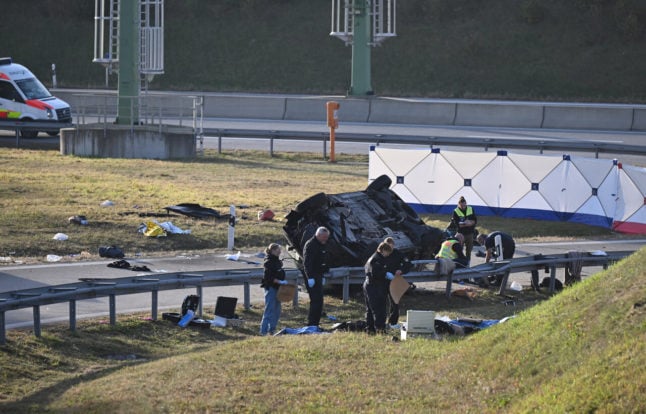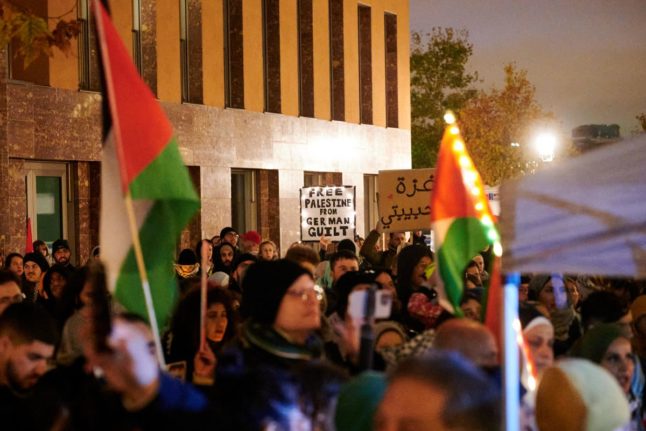Police said a Mercedes Vito minibus with Austrian license plates and 23 people cramped inside tried to avoid the check some 50 kilometres (31 miles) from the border between Austria and Germany as it drove toward Munich.
The driver lost control of the vehicle, which flipped over several times before landing on its side.
Authorities said they believe a “people smuggler” was at the wheel and have opened a criminal investigation into the crash in the Bavaria region on suspicion of homicide.
“A six-year-old child was among the dead,” police spokesman Stefan Sonntag told AFP but could not comment on the victim’s sex or nationality.
“The driver and suspected people smuggler survived and is among those injured.”
Sonntag said the preliminary indications were that the passengers in the vehicle were Syrian and Turkish nationals, with the driver described as “stateless”.
Some of the 16 people injured were in a serious condition and being treated in local hospitals, with other children believed among the victims.
Federal Interior Minister Nancy Faeser, who has launched a drive against illegal immigration, said she was “shocked” by the deadly crash “involving suspected people smuggling”.
“This terrible event shows the cruel and inhumane way smugglers put people’s lives at risk,” she said in a statement.
“My deepest sympathy goes out to the victims. My thoughts go out especially to the children who were penned in the vehicle.”
‘Profit out of desperation’
According to police, the vehicle sped up to avoid a road check by federal police forces who had observed it was packed with people. The minivan then
took a motorway exit between the towns of Ampfing and Waldkraiburg and crashed at about 3:15am.
The crumpled minivan with its windshield shattered was lying overturned on a guardrail as emergency services workers tended to the injured.
Several emergency services, including rescue helicopters and the fire department were at the scene on Friday morning.
Part of the Autobahn A94 was closed off in the direction of Munich.
According to the federal police and the Bavarian border police, the number of unauthorised entries has been increasing for several months, and the A94 is considered a typical smuggling route. Recently, a suspected smuggler fled from the police near Burghausen with four people in the car, sparking a crash. Two people were seriously injured.
“We have significantly stepped up federal police presence on the people-smuggling routes on our borders,” Faeser said.
“We must smash the cruel business of the people-smuggling gangs who make profit out of people’s desperation.”
A surge in arrivals in recent months, mainly from Syria and Afghanistan, has reignited a fierce immigration debate in Germany with local authorities saying they are overwhelmed by the number of asylum seekers.
The influx has fuelled support for the far-right, anti-immigration Alternative for Germany (AfD) party, which made major gains in two regional elections this month including in Bavaria.
Since early October, Germany has beefed up controls along its eastern border amid concerns that too many migrants were trying to enter the country.
READ ALSO: German police crack down on illegal crossings at Polish border
Germany recorded over 250,000 asylum requests in the year to September, more than for the whole of 2022.
The country is also hosting more than a million Ukrainian refugees.



 Please whitelist us to continue reading.
Please whitelist us to continue reading.
Member comments